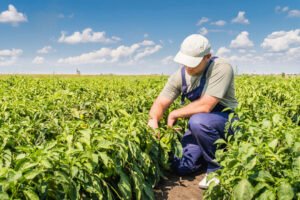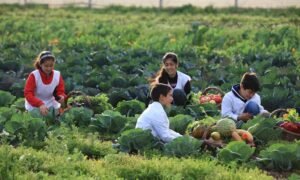Agricultural Education in Greece. Agriculture has always held a significant place in Greek history and culture. It is the nation that gave the world the myth of Demeter, the goddess of grain and harvest, and it is the country whose ancient civilizations thrived on farming and trade. Therefore, it is no surprise that agricultural education in Greece is deeply rooted, carrying with it both ancient traditions and modern advancements.
Table of Contents
Agricultural Education in Greece
Historical Background
Agriculture in ancient Greece played a pivotal role in the development of numerous technologies, cultural practices, and institutions that we recognize today. To truly grasp the depth of agricultural education in Greece, one must first understand its historical underpinnings.
In ancient times, agricultural knowledge was passed down orally from generation to generation. Farming techniques, timings, and tools were taught from elders to the young within the family. This informal education was the foundation upon which ancient Greece built its agrarian society.
With the establishment of the famous Academy by Plato and the Lyceum by Aristotle, although primarily philosophical, the seeds of formal education in various disciplines, including agriculture, were planted.

Traditional Agricultural Practices
Greek traditional agricultural practices revolved around the Mediterranean triad: grain (especially barley), olives, and grapes. This triad formed the dietary and economic backbone of ancient Greek society. Knowledge about the cultivation of these crops, as well as the associated rituals, was crucial.
The ancient Greeks developed terrace farming in response to the mountainous terrain, which is still a common sight in the Greek countryside today. Additionally, they practiced crop rotation to maintain soil fertility and employed various organic methods to combat pests and diseases.
Modern Agricultural Education in Greece
Institutional Development
In modern times, Greece has seen a substantial evolution in agricultural education. With the country’s entry into the European Union in 1981, there was a greater emphasis on aligning its agricultural practices with European standards. This shift necessitated a more structured and formalized approach to agricultural education.
Institutions dedicated to the study of agriculture, such as the Agricultural University of Athens and the Technological Educational Institute of Crete’s School of Agricultural Technology, began offering advanced courses and research opportunities in various agricultural disciplines. These institutions provide Bachelor’s, Master’s, and PhD degrees in fields ranging from crop science and biotechnology to agribusiness management.

Curriculum and Research
The curriculum in these institutions is designed to give students a comprehensive understanding of both the theoretical and practical aspects of agriculture. They cover subjects like agronomy, plant pathology, animal husbandry, agricultural economics, and sustainable farming practices.
Moreover, with the increasing global focus on sustainable and organic farming, many Greek institutions have invested in research in these areas. Greece’s unique biodiversity, combined with its traditional farming practices, provides an excellent backdrop for studying organic and sustainable agricultural methods.
Extension Services and Training
Apart from formal education, the Greek Ministry of Rural Development and Food operates agricultural extension services that offer training and support to farmers. These services play a crucial role in disseminating new research findings, technologies, and best practices among the farming community. They provide workshops, seminars, and on-site training, ensuring that even those not involved in formal agricultural education have access to the latest knowledge and tools.
Challenges and Opportunities
Challenges
- Economic Crisis: The recent economic crisis in Greece impacted all sectors, including agriculture. Reduced funding for agricultural education and research posed significant challenges.
- Land Fragmentation: The small size and fragmentation of agricultural holdings in Greece can sometimes make it difficult to implement modern, large-scale farming techniques.
- Aging Population: Like many parts of Europe, Greece faces the challenge of an aging farming population, with fewer young people showing interest in pursuing agriculture as a career.

Opportunities
- Agrotourism: With its rich history and beautiful landscapes, Greece has a unique opportunity to combine agriculture with tourism. Agrotourism can serve as both an educational and economic tool.
- Organic Farming: Given its traditional agricultural practices and biodiversity, Greece is well-positioned to become a leader in organic farming in the Mediterranean region.
- EU Funding: Being a member of the EU, Greece has access to various funding opportunities for research, development, and innovation in agriculture.
Conclusion
Agricultural education in Greece is a blend of ancient wisdom and modern science. From the terraced fields of the ancient Greeks to the modern research labs, Greece’s agricultural journey has been remarkable. By leveraging its strengths and addressing the challenges, Greece has the potential to not only ensure food security for its population but also to emerge as a leader in sustainable and innovative agricultural practices in the region.
